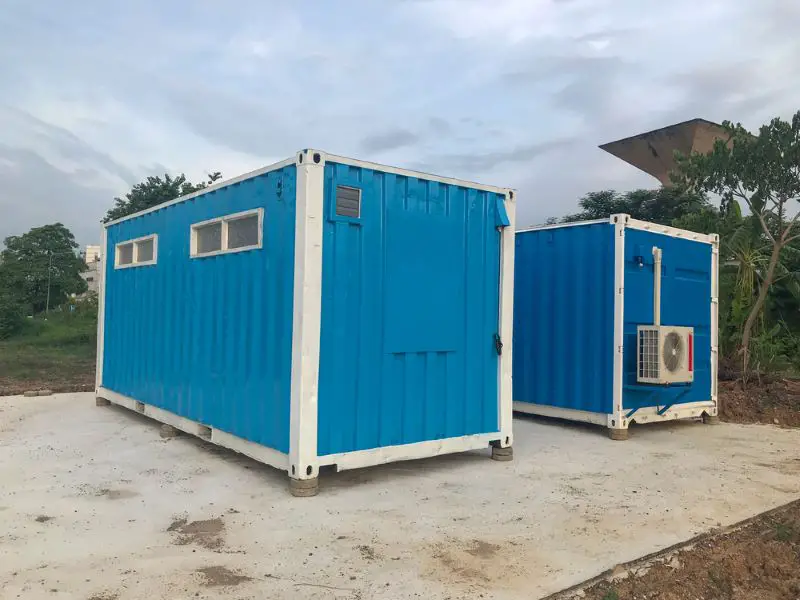Click here to get this post in PDF

In the construction industry’s journey towards tackling ever more complex and ambitious projects, the emphasis on sustainability is paramount. Portable cabins offer an innovative alternative to conventional construction accommodation, aiming to minimise environmental footprint and disruption while delivering the flexibility these projects now require.
Portable cabins provide versatile and efficient solutions for accommodation needs across various projects – be it extensive urban developments, music events, or sustainable ventures in remote locales. At the same time, they can be instrumental in reducing environmental impact.
In this article, we explore the environmental advantages of portable cabins, alongside their cost-effectiveness and convenience.
Understanding Portable Cabins and Their Environmental Merits
Portable cabins are modular units tailored to meet diverse site requirements – from sanitation services to accommodation and communal spaces for food preparation and relaxation.
Manufactured away from the final site, these cabins are designed for easy transport and installation, making them ideal for inaccessible or secluded areas. Their design prioritises energy efficiency through advanced insulation and electrical setups, leading to reduced energy use.
Moreover, the construction materials of portable cabins are often sustainable, and because they can be dismantled and repurposed, they offer a sustainable choice for modern needs that is more cost-effective and environmentally friendly than having workers commute or stay in hotels.
Comparative Benefits over Traditional Construction
The escalating need for temporary and semi-permanent lodging solutions brings to light the benefits of portable cabins over traditional construction. Their rapid assembly, versatility, and application in numerous settings make them increasingly popular.
These cabins are not only energy-efficient and durable but are also designed for longevity. As such, they offer a practical alternative not only for construction sites, but for various scenarios including workplace settings, remote sites, and emergency accommodations.
Eco-Friendly Construction and Installation Processes
The prefabricated nature of portable cabins allows for a more controlled and efficient construction process compared to traditional methods. This leads to reduced waste and energy use, which underpins their sustainability benefits.
Materials are selected for their durability, ease of assembly, and energy efficiency, resulting in a sustainable construction choice that lessens resource consumption and environmental pollution.
Time and Cost Efficiency of Portable Cabins
Portable cabins offer quick and efficient setup, which shortens project lead times, lowers labour costs, and mitigates environmental impact. They provide a direct solution to site accommodation needs, avoiding the high costs and environmental toll associated with hotels and commuting.
These units can also fulfil project managers’ legal and safety obligations by providing access to essential amenities that enhance worker satisfaction and productivity.
Portable cabins’ modular design and robust construction mean they have a long lifespan. Once a project concludes, the cabins can be redeployed, which significantly reduces site waste and the demand for new materials.
Their growing popularity stems from their efficiency, cost-effectiveness, and sustainability. Quick assembly processes, waste reduction, and the use of eco-friendly materials position portable cabins as a superior choice for those committed to environmental conservation or with regulatory requirements to fulfil.
In summary, portable cabins represent an optimal choice for project managers aiming for financial and environmental efficiency. Their increasing adoption reflects their potential to shape the future of project management sustainably.
You may also like: Streamlining Business Operations with Portable Storage Containers
Image source: Depositphotos.com
